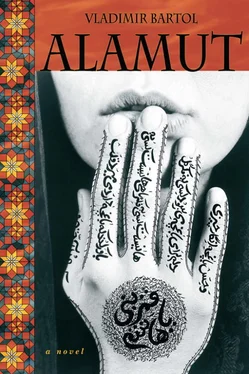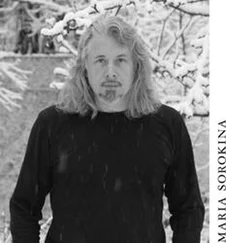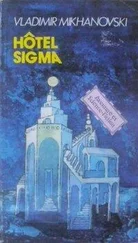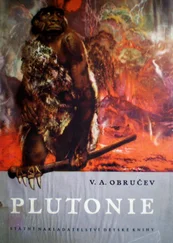Vladimir Bartol - Alamut
Здесь есть возможность читать онлайн «Vladimir Bartol - Alamut» весь текст электронной книги совершенно бесплатно (целиком полную версию без сокращений). В некоторых случаях можно слушать аудио, скачать через торрент в формате fb2 и присутствует краткое содержание. Город: Berkeley, Год выпуска: 2012, ISBN: 2012, Издательство: North Atlantic Books, Жанр: Историческая проза, на английском языке. Описание произведения, (предисловие) а так же отзывы посетителей доступны на портале библиотеки ЛибКат.
- Название:Alamut
- Автор:
- Издательство:North Atlantic Books
- Жанр:
- Год:2012
- Город:Berkeley
- ISBN:9781583946954
- Рейтинг книги:2.8 / 5. Голосов: 5
-
Избранное:Добавить в избранное
- Отзывы:
-
Ваша оценка:
- 60
- 1
- 2
- 3
- 4
- 5
Alamut: краткое содержание, описание и аннотация
Предлагаем к чтению аннотацию, описание, краткое содержание или предисловие (зависит от того, что написал сам автор книги «Alamut»). Если вы не нашли необходимую информацию о книге — напишите в комментариях, мы постараемся отыскать её.
Alamut — читать онлайн бесплатно полную книгу (весь текст) целиком
Ниже представлен текст книги, разбитый по страницам. Система сохранения места последней прочитанной страницы, позволяет с удобством читать онлайн бесплатно книгу «Alamut», без необходимости каждый раз заново искать на чём Вы остановились. Поставьте закладку, и сможете в любой момент перейти на страницу, на которой закончили чтение.
Интервал:
Закладка:
“Let’s go have a last look at the gardens!” he at last invited them.
They entered the lift and descended to the base of the tower. A eunuch lowered the bridge and Adi ferried them over to the central garden.
The deciduous trees were bare and the flower beds were deserted. There was no fresh greenery, no flowers. Only a cypress grove darkly withstood the winter.
“If you sent somebody to the gardens now,” Abu Ali said, “he’d have a hard time believing he was in paradise.”
“The world consists of color, light and warmth,” Hasan replied. “They are the food for our senses. A ray of light on the landscape, and it’s completely transformed in our eyes! With its transformation our feelings, thoughts and moods are also transformed. This, you see, is the eternally self-renewing miracle of all life.”
Apama joined them.
“How are the girls doing?” Hasan asked.
“They talk a lot, and they work a lot, they laugh a lot and they even cry a lot. They just don’t think very much.”
“That’s for the best. Otherwise they might realize they’re in prison. It can’t be helped. You women are used to harems and prison. A person can spend his whole life between four walls. If he doesn’t think or feel that he’s a prisoner, then he’s not a prisoner. But then there are people for whom the whole planet is a prison, who see the infinite expanse of the universe, the millions of stars and galaxies that remain forever inaccessible to them. And that awareness makes them the greatest prisoners of time and space.”
They walked silently down the deserted paths.
“Is there anything new here?”
“No, except that we’re expecting a few babies.”
“That’s fine. We’ll need them. Make sure that everything goes well.”
Then he turned to his grand dais and said, “Those will be the only creatures in the world who were conceived by their fathers in the firm belief that their mothers were heavenly maidens, unearthly beings.”
They walked around the pond.
“Spring will come again, and then summer after it,” Hasan continued. “Stay as warm as you can through the winter, so you can experience the luxury of nature renewing itself again in the gardens. And we should withdraw to our chambers too, because the sky has clouded over ominously and it might even snow tomorrow. It’s going to get colder.”
When they returned to the castle, Hasan bade his grand dais farewell with these words:
“The earth has barely made half a circuit around the sun, just half of one of the hundreds and hundreds of thousands it has made until now. And yet we can say that a fair amount has changed on its surface in that time. The empire of Iran no longer exists. Our institution has emerged from the night. What course will it take from here? We call for an answer in vain. The stars above us are silent.”
For the last time he embraced both of his friends. Then he entered the lift. They felt a strange sadness as they watched him ascend.
He locked himself inside his chambers and died to the world.
And legend enfolded him in its wings.
AFTERWORD
AGAINST IDEOLOGIES:
VLADIMIR BARTOL AND ALAMUT
Vladimir Bartol (1903–1967) wrote Alamut , which remains his only book of any significant renown, in the peaceful seclusion of a small, baroque town nestled in the foothills of the Slovenian Alps, over the course of about nine months in 1938. As he worked on an early draft, barely thirty miles to the north Austria was forcibly annexed to Nazi Germany. Fifty miles to the west, just over another border, Italy’s Fascists regularly hounded the large ethnic Slovenian minority of the Adriatic seacoast town of Trieste, and were already looking to extend their holdings into the Slovenian and Croatian regions of the Kingdom of Yugoslavia. A few hundred miles to the north and east, in the Soviet Union, Stalin’s bloodiest purges had reached their high tide, claiming hundreds of thousands of victims, most of whom met their fate in dank cellars with a single bullet to the back of the head. Amidst this turmoil and menace, Slovenia and its parent country of Yugoslavia were, for the time being, an island of relative tranquility. If the book that Bartol wrote in these circumstances proved to be an escape from the mass political movements, charismatic leaders, and manipulative ideologies that were then coming to rule Europe, it was also a profound meditation on them.
Most of all, Alamut was and is simply a great read—imaginative, erudite, dynamic and humorous, a well-told tale set in an exotic time and place, yet populated by characters with universally recognizable ambitions, dreams and imperfections. Both at home and abroad, it continues to be perhaps the most popular book that Slovenia has ever produced, with recent translations of Alamut having become bestsellers in Germany, France and Spain. But despite its surface appearance as popular literature, Alamut is also a finely wrought, undiscovered minor masterpiece which offers the reader a wealth of meticulously planned and executed detail and broad potential for symbolic, intertextual and philosophical interpretation.
Bartol, himself an ethnic Slovene from Trieste, studied in Paris and Ljubljana, eventually settling in the Slovenian capital to pursue a literary career. During his studies in Paris in 1927, a fellow Slovene who knew of Bartol’s ambitions as a writer recommended that he draw on the episode of the “Old Man of the Mountain” from The Travels of Marco Polo as material for a short story or novel. This tale, recounted to Marco Polo as he progressed along the Silk Road through Iran, had to do with a powerful local sectarian warlord who supposedly used hashish and a secret bower of kept maidens to dupe young men into believing that he had the power to transport them to paradise and bring them back to earth at will. Thus winning the youths’ fanatic loyalty, he was able to dispatch them to any corner of the world on suicidal missions of political assassinations that served to extend his power and influence. Bartol took the subject matter to heart and during the next ten years did extensive research into the broader historical background of the tale while inventing a novelistic plot and structure of his own. Completing the novel became his passion, his reason for being. In his diary he pleaded with the fates to let him live to finish the book and deliver it safely into the printer’s hands. After a long gestation of ten years, the novel finally took shape on paper in the course of four successive drafts during those intense, secluded months that Bartol spent in the town of Kamnik. By all accounts, Bartol was radiantly happy during this period, just as we might imagine a person who knows he’s creating a masterpiece should be.
Unfortunately, the timing of this masterpiece’s appearance in the world was less than perfect. Alamut’s trajectory was interrupted first by the German and Italian annexation of Slovenia from 1941 to 1945, then by the literary ideologies of Tito-led Communist Yugoslavia, where for some years the book was seen as a threat. What’s more, its subject matter and style were completely at variance with the dominant trends in Slovenian literature both before and after World War II. Writers of small, linguistically isolated nations often have an overwhelming need to write about life in that particular small nation, perhaps as a way of helping to validate and reinforce the nation’s very existence. Because there was nothing identifiably Slovenian about Alamut , except for its language, his fellow writers took to characterizing Bartol as “a mistake in the Slovenian genetic code.” Here was an adventure novel set in northwestern Iran, written in places to resemble Thousand and One Nights , and centered around the deep tensions between the indigenous Pahlavi-speaking Shiite Muslim inhabitants of the region and their Seljuk Turkish Sunni Muslim overlords—a thoroughly readable and well-researched novel that used a simple prose style to depict colorful settings and develop a suspenseful plot, rather than the usual tale of tensions among Slovenian peasants, landowners and townspeople. Bartol himself told of being approached on the street years later by one of his old schoolmates, who told him, “I read your translation and really enjoyed it.” “What translation?” Bartol replied. “That fat novel, the one that was written by some English or Indian author,” the man explained. “Do you mean Alamut ?” Bartol asked. “I wrote that.” The man laughed at this and waved dismissively, “Go on, get out of here. You can’t fool me.” And then he walked away. Ordinary readers found it inconceivable that a Slovenian could develop a story so completely outside of their own historical experience—it had to have been written by a foreigner. Bartol himself saw the guild of Slovenian writers as divided into two categories: the nationalists, who were in the majority and expressed what he called “the anguished lament of their own time,” and the cosmopolitans, who had a broader sense of history but were in the minority. Needless to say, Bartol saw himself in the second, generally misunderstood, group.
Читать дальшеИнтервал:
Закладка:
Похожие книги на «Alamut»
Представляем Вашему вниманию похожие книги на «Alamut» списком для выбора. Мы отобрали схожую по названию и смыслу литературу в надежде предоставить читателям больше вариантов отыскать новые, интересные, ещё непрочитанные произведения.
Обсуждение, отзывы о книге «Alamut» и просто собственные мнения читателей. Оставьте ваши комментарии, напишите, что Вы думаете о произведении, его смысле или главных героях. Укажите что конкретно понравилось, а что нет, и почему Вы так считаете.












